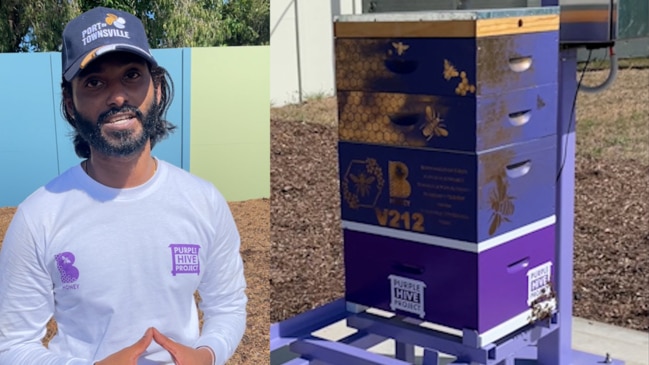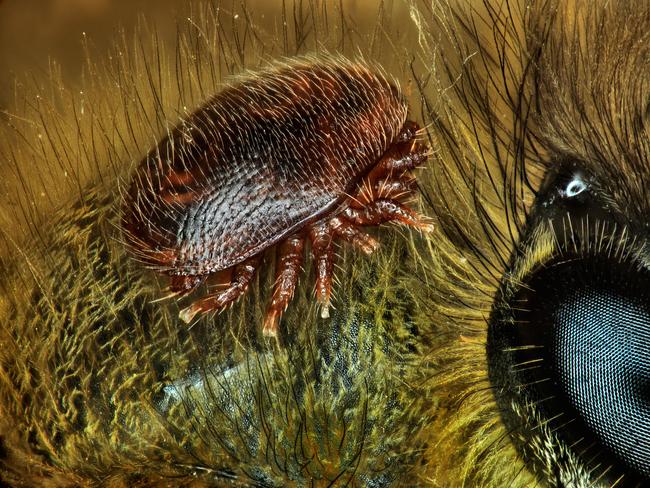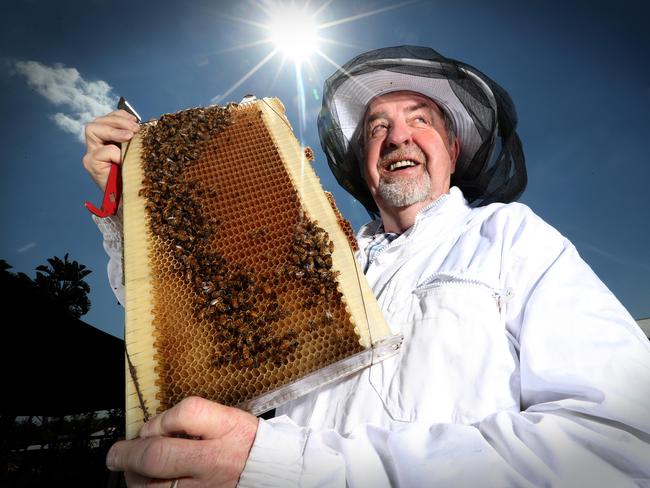Pandemic-style NSW lockout Qld’s effort to stop pest’s spread
Like the rabbit, cane toad and fire ant, a new foreign pest on Queensland’s doorstep is expected to soon wreak economic chaos.

QLD Politics
Don't miss out on the headlines from QLD Politics. Followed categories will be added to My News.
Queensland’s tough Covid-19-style border restrictions will return, this time for bees, as a deadly pest threatens a multimillion-dollar economic and biosecurity disaster.
Testing and contact tracing is under way to determine the extent of the spread of infection across hives across Queensland’s border.
With snap lockdowns unavailable in the battle to prevent the spread, Agricultural Industry Development Minister Mark Furner will establish a hard border with the southern state – with beekeepers banned from moving hives and equipment across the border.
The European honeybee-killing varroa mite has rapidly spread across New South Wales and the nation’s peak pest and disease agency, the National Management Group, is waving the white flag on attempts to eradicate it.
Varroa mite, the world’s most devastating honey bee pest, has not been detected in Queensland, but the national move to managing rather than eradicating it has raised concerns.
Australia was the last continent free of varroa mite until it was detected at the Port of Newcastle last year.

The federal government spent $132m attempting to eradicate the mite, with 30,000 hives euthanased in a bid to wipe it out.
Mr Furner said the state would temporarily ban hives and material from entering the state.
“Queensland will join other Australian states and territories in transitioning from eradication to management of varroa mite,” he said.
“During the transitional phase to a formal management plan, a pause on the issuance of permits for movements of bee hives and bee-related material from New South Wales into Queensland will be in place while the risks are being assessed.
“Queensland beekeepers are being asked to regularly monitor their hives and immediately report unexpected hive deaths, deformed bees, bees with parasites, poor brood patterns and dead brood.”

Since April, 128 permits have been issued.
Mr Furner said early detection was critical to containing and tracking the pest.
Ipswich councillor and beekeeper Paul Tully warned of significant economic loss when the mite inevitably takes hold.
“It can wipe out entire colonies and it’s spreading north, there’s no doubt about it,” he said.
“I’ve been keeping bees for 60 years and this is the most serious.
“It’s like the rabbit, it’s like the cane toad, it’s like the fire ant – it just won’t give up.”
Mr Tully said the mite would affect “everyone” from beekeepers to consumers, who could expect to pay more for honey.
Beekeepers are being urged to become a registrable biosecurity entity, regularly check their hive and report the findings to the government’s Bee123 portal.
As of September 25 more than 20,929 hives had been tested and the findings reported on the portal.





